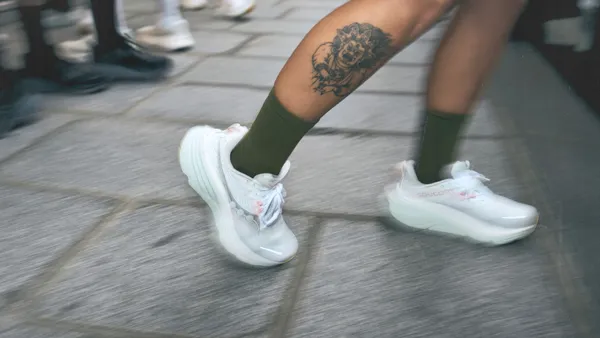Dive Brief:
- Unilever will funnel more of its marketing spend to outreach that directly supports purpose-based messaging, Marketing Week reported, citing comments by CEO Alan Jope during an analyst call this week to discuss the company's annual results.
- Unilever's data shows that brand purpose supports both short- and long-term growth, according to the report. Brand purpose is one of the company's five key growth fundamentals going forward. The company saw sales grow 2.9% in 2019 reaching $57.4 billion, Unilever reported in its end-of-year earnings report.
- "We are now stepping up execution against our fundamental drivers of growth. These are to: increase penetration by improving brand awareness and availability; implement a more impactful innovation program; improve our performance in faster growing channels; drive purpose into all our brands; and fuel growth through cost savings," Jope said in the earnings report.
Dive Insight:
Unilever's investment in purpose-based marketing is a noteworthy commitment from one of the world's largest advertisers to an approach that's drawn significant interest from the industry. While research such as Kantar Consulting's Purpose 2020 report states that brands with purpose grow two times faster than others and resonates particularly well with millennials and Gen Z, Unilever's commitment strengthens the case for purpose even more with the revelation that its own data shows how purpose drives growth.
Unilever's brands have been creating campaigns that illustrate a cultural purpose or cause, which, when executed properly, are often well-received by consumers who are looking to purchase products from brands that are willing to support progressive causes.
While the case for purpose-driven marketing blossoms, the approach also comes with its own set of challenges, something Unilever has been at the forefront of acknowledging. Jope warned at Cannes last year that "woke-washing" — when brands run purpose-driven campaigns, but don't take action — could "infect" the advertising industry. "It threatens to further destroy trust in our industry, when it's already in short supply," Jope said.
Consumers expect brands to be socially responsible, and yet, trust that brands will deliver is down, per Edelman's 2019 Trust Barometer Special Report. Eighty-one percent of consumers said they consider brand trust in their purchasing decisions, but only 34% actually trust the brands they buy from. Additionally, 53% of consumers think brands "trustwash," or aren't as committed to helping society as they claim.
Unilever has an established track record as a purpose-driven marketer. The company's personal care brand Dove has centered its marketing around the idea of expanding definitions of "real beauty" for years. In one recent incarnation of this positioning, Dove last year partnered with Getty Images and the creative network Girlgaze to create #ShowUs, a stock image library featuring more than 5,000 photographs of women taken by female, non-binary and female-identifying photographers in an effort to increase diversity in images of beauty available to advertisers and the media.
In another example, Unilever line Love Beauty and Planet ran an ad in The New York Times in December which could be reused as holiday wrapping paper and encouraged consumers to reuse items during the holiday season to cut down on waste.













